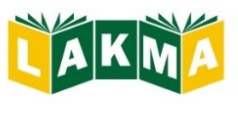The British Council and LAKMA are pleased to invite English language teachers to a winter school FOCUS ON YOUNG LEARNERS: teaching and assessing
This is a two-day training course for teachers of English teaching young learners (forms 2-6) in Lithuanian schools of comprehensive education. It aims at helping the teachers to enhance their professional competences in the fields of CLIL and assessment.
TARGET GROUP
-teachers of young learners (up to form 6)
-teachers from different regions of Lithuania
-teachers representing and / or working with students from various cultural / ethnic groups
-teachers with different working experience, including pre-service teachers / trainees
VENUE The Lithuanian University of Educational Sciences, Studentų g. 39, Vilnius
DATE 17–18 February 2017
THEMES AND PRESENTERS
– Content and Language Integrated Learning – Wendy Arnold
– Assessment of Learning and Assessment for Learning – Dr. Shelagh Rixon
TRAVEL AND ACCOMMODATION
The travel costs to and from Vilnius will be covered. Please keep your travel documents for reimbursement. Accommodation at the Ecotel Hotel (including breakfast) will be provided free of charge. Two-bed rooms will be offered.
Wendy Arnold is a co-founder of ELT-Consultants www.elt-consultants.com. She has been a primary classroom English teacher in a state school in Hong Kong (for 15 years), teaching 6 to 12 year olds. She has also written coursebooks for primary students, delivered training programmes for teachers and trainers, and worked as a consultant with Ministries of Education during Education Reform projects. She has worked on CLIL projects in The Netherlands, Pakistan and the United Arab Emirates, writing and delivering materials and training. She holds an MA in Teaching English to Young Learners.
Science and Environment in the primary English classroom. This session will look at (a) ways to introduce the concept of ‘Animals’ at three levels using English. Teachers will learn how the use of body movement assists to remember animal names, as well as comparing different animals, their groups and parts of animals; (b) ways to introduce the concept of ‘around our local area’ at three levels using English. Teachers will learn how to introduce how water is used in the home and why it should be saved, as well as understand who helps us in the community. The importance of looking after the environment will be explored as well as how people affect the habitats around us.
Maths in the primary English classroom. This session will look at (a) ways to introduce the concept of ‘Numbers’ at three levels using English. Teachers will learn how to make the link between numerals and cognition using language, as well as simple addition and subtraction. Mental arithmetic will be practised, as well as working out number relationships; (b) ways to introduce shapes at two levels which includes a shape dance and maze.
Arts and Literacy in the primary English classroom. This session will look at (a) ways to introduce drama at two levels by the concept of a ‘zoo’ and by acting out a comic story; (b) ways to introduce a reading drama at one level by reading a play script.
Dr. Shelagh Rixon has worked extensively in Europe and Asia in a Young Learners connection, in particular in Italy where she was English Language Officer for the British Council during the education reforms leading to the teaching of foreign languages in the primary school there. She coordinated the MA in Teaching English to Young Learners at the University of Warwick until 2009. She now acts as an Associate Tutor for the University of Leicester. She has written course materials for Young Learners and is currently working on two books on assessment and Young Learners for Cambridge University Press and for Multilingual Matters.
Bringing assessment theory and classroom practice closer together. In this session we will look at the reasons for which assessment might take place in class. The session will include results and analysis of a questionnaire which has been used in a number of research projects and seems consistently to show that there are gaps between what research suggests is best practice and what teachers find feasible in class. We will investigate the concepts of informativeness, fairness, feasibility and appropriacy.
Assessment of Learning. Teachers need reliable and fair ways of judging for purposes such as grading pupils or tracking progress over time in a systematic and accurate way. Techniques discussed will include appropriate test tasks, training children in more realistic self-assessment, portfolio use and issues involved in matching children’s performance against the CEFR. The shortcomings of the current CEFR for use with children and current work on its improvement will be discussed.
Assessment for Learning. In the last 25 years Formative Assessment has taken on some new aspects and in contexts such as the UK it is now deeply integrated with teaching itself; it is now known as Assessment for Learning (AfL). The practice of AfL is new in foreign language teaching, but is beginning to gain ground. I will show some practical examples of how it can work at the whole class level and with individual children.
